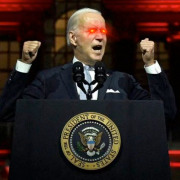Trump vows to broker Israeli-Palestinian peace, offers no new policies
-
Recently Browsing 0 members
- No registered users viewing this page.
-
Topics
-
-
Popular Contributors
-
-
Latest posts...
-
52
USA Women Shouldn't Be Allowed to Vote? Hegseth's Video Sparks Fury!
I think that you may have missed a few. -
1
Best method to remain in Thailand 30-90 days post divorce?
What is expiry date on current permission of stay? -
28
Accident Foreign Motorcyclists Leave Scene After Jomtien Collision
Not case closed when there are foreigners to blame and extort. -
147
Take back the Sanctuary DC and return it to the Feds...
None by the right then, hmmm, when the rights' leader is the biggest liar of them all. 🤥 -
7,793
-
147
Take back the Sanctuary DC and return it to the Feds...
All of the lies perpetuated by the left are coming back in significant fashion! I'd love to see ICE Enforcement reach into the largest LE agency and with the help of US prosecutors dismantle Sanctuary Criminal corruption
-
-
Popular in The Pub








Recommended Posts
Create an account or sign in to comment
You need to be a member in order to leave a comment
Create an account
Sign up for a new account in our community. It's easy!
Register a new accountSign in
Already have an account? Sign in here.
Sign In Now